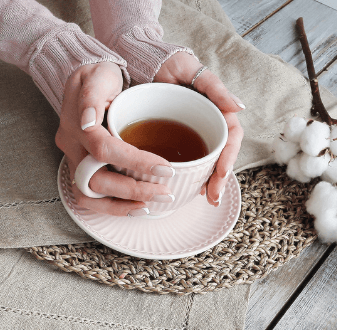“Prevention is better than cure.”

Sushma comes all the way from Kathmandu, Nepal. She is currently in the 3rd stage of Diploma of Nursing program.
“To me, becoming a nurse is one of the most selfless jobs acts you can do. I love getting the opportunity to help people from all over the world, having the chance to know them and take care of them is one the greatest blessings.”
Sushma shares her tips on how you can avoid ending up in the hospital from the flu and how you can stay as healthy as possible this flu season:
Influenza, more commonly known as the “flu” is a serious and highly contagious virus. It can cause hospitalization and in some cases, even death. The flu contributes to over 3,000 deaths in Australia each year. Particularly for young children, elderly, and those with underlying medical conditions.
The colder temperatures in winter months is the perfect time for cold and flu viruses. This is mostly due to people congregating in enclosed areas, leaving a high chance of spreading the flu. Common symptoms of the flu include fever, nasal congestion, headache, ear pain, muscle pain, nausea and fatigue.
How you do you avoid the flu?
Here are some preventive measures you can take to avoid the flu this season:
- Get your flu shot. This can be available either from your work place or your nearest pharmacy. If getting the flu shot concerns you, read about the ingredients in a flu vaccine and why.
- Avoid getting in close contact with people who are sick. This can be difficult if you work in a small enclosed office or take public transport, do your best to keep a distance from sick people.
- Wash your hands with soap water. This is particularly important after you’ve taken public transport or are around sick colleagues. Even your keyboard and your cell phone contains all sorts of germs. If soap and water is not available, use alcohol based hand rub.
- Be extra careful not to touch your eyes, mouth or nose without properly washing your hands. Germs are often spread when a person touches something that is contaminated and then touches their eyes, mouth or nose.
- Take extra care of yourself. Eat a balanced diet, get some regularly exercise and make sure you have a good night sleep for at least 7-9 hours.
If you do end up getting a cold or the flu
See your GP and take time off from work or school. This will help prevent spreading the virus to other people. Give your body time to rest and drink plenty of water. If you must leave home, always cover coughs and sneezes with a tissue and wash your hands often to keep from spreading flu to others.
Interested in Nursing?
Learn more about out Diploma of Nursing course and start your journey.




